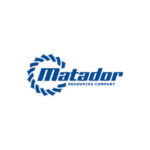From Breaking Energy
Last week at Chevron’s annual general meeting, a shareholder resolution calling on the company to improve its methane management and disclosure received a 45% vote. This strong vote follows a majority vote at Range Resources, where 50.3% of voting shareholders supported a similar methane disclosure resolution (up from just 20% in 2013). Oil and gas industry shareholders are sending a powerful message– methane is a material risk that companies must manage to compete in a capital- and climate-constrained world.
Such resolutions are effective at driving change, even for non-majority votes like the 38% of shareholders at Kinder Morgan who supported a methane resolution. For example, last year ExxonMobil’s methane resolution received a 39% vote, and the company responded with a new methane emissions production program, which now includes a quantitative methane reduction target.
Investors will be waiting to see if these companies follow ExxonMobil’s example, as well as deliver results once these programs are implemented. With investors tilting their portfolios towards companies who proactively manage climate risk, they will be closely watching how these companies respond to the clear market demand for improved methane management and disclosure.
Withdrawals
High percentage votes are not the only way to measure the success of a shareholder resolution. A resolution can drive company progress without going to a vote, if filers and companies are able to work together on an agreement.
For seven of the ten methane resolutions this year, filers withdrew their requests after negotiating commitments from the companies in question.
Anadarko, Devon Energy, Dominion, DTE Energy, Energen, Exelon and EQT all reached agreements to improve their methane disclosure before the resolutions came to a vote.
For example, EQT’s resolution was withdrawn after the company updated its website to include greater details on methane emissions and its leak detection and report program. The company has also joined the ONE Future initiative, and correspondingly adopted a methane target. If EQT was ranked and scored in the Disclosing the Facts report today, it would now have seven points, up from one point in the 2017 report.
A methane resolution filed with Dominion was similarly withdrawn. Dominion has committed to report key methane metrics to its investors annually, including updating its 2017 Methane Management Report to include a methane leakage rate for each of its business segments.
These withdrawals may signal company management recognition of investor seriousness on the issue. Companies are willing to negotiate on these methane resolutions, with the understanding that a constructive dialogue with investors on a material risk can lead to beneficial outcomes but all stakeholders.
International interest
Shareholder engagement and resolutions is spreading beyond North America. Investors in Europe are also demonstrating clear concern about methane. Bloomberg reporter Kelly Gilblom observed, “A bit of a surprise to me — there have been as many questions about methane emissions as carbon emissions at @BP_plc ‘s AGM in Manchester.”
Australian investors filed a methane resolution with Santos this year, earning an almost 10% vote – a remarkably high number for an Australian resolution. As context, the highest ESG-related vote in Australia corporate history only received about 18% support.
Targets wanted
A trend from this year’s resolutions is the importance investors have placed on target-setting. Nine out of the ten methane shareholder resolutions this year called on companies to set methane specific reduction targets within the context of broader disclosure requests.
Setting targets is the next front for methane disclosure – companies like BP, Eni and ExxonMobil have already announced their own methane emissions targets – and investors increasingly expect others to follow. EDF report Taking Aim can be a tool for Range, Chevron and industry investors to develop and evaluate methane targets going forward.
What to watch
In the short term, investors will be on the lookout for companies to take concrete steps to reduce emissions and improve reporting now that the resolution results are in.
Companies should note investors have an increasingly high bar of expectations regarding climate risk management, and can quickly disapprove of companies’ responses perceived as lackluster.
For instance, ExxonMobil’s report on climate change risks last year was criticized for its assumptions and vagueness. Looking forward, companies should remember that when an industry’s largest shareholders ask for information, it is in the company’s best interest to listen and provide detailed answers that demonstrate results.
In the long term, this year’s resolution season is an indicator that investors are demanding better methane management. Companies lagging their peers should expect similar resolutions going forward.




